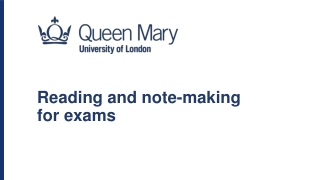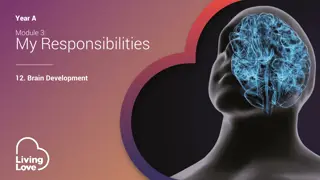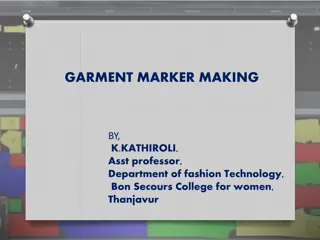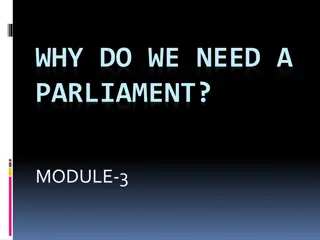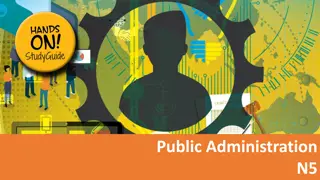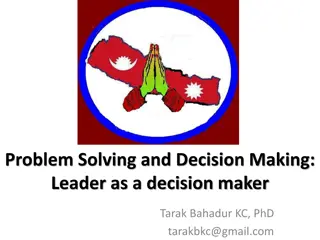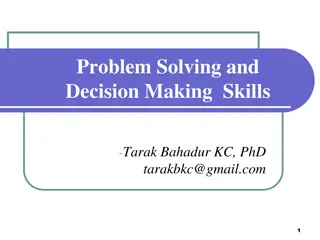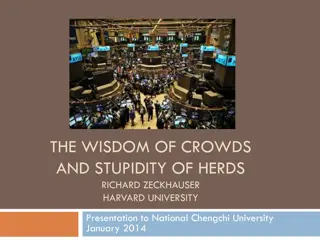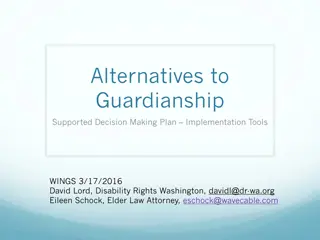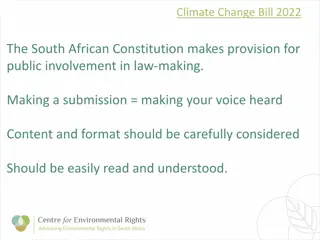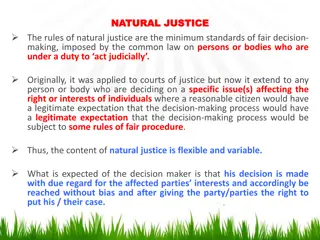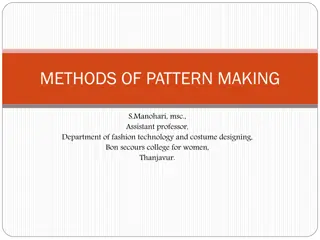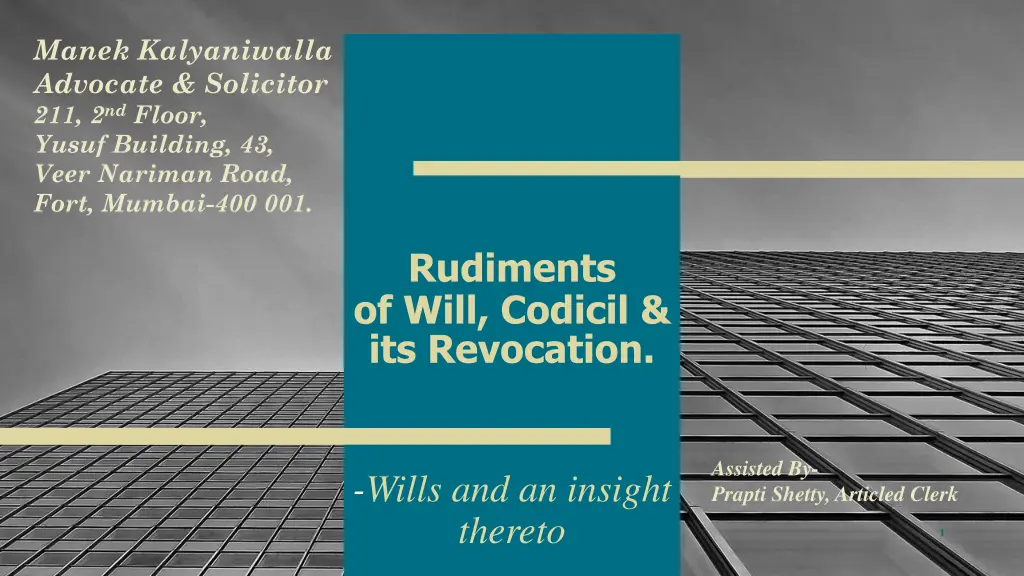
Understanding Will, Codicil, and Testamentary Concepts
Explore the definitions and terminologies related to wills, codicils, and testamentary documents explained by Manek Kalyaniwalla, Advocate & Solicitor in Mumbai. Learn about probate, executor, heir, legatee, and more essential aspects of estate planning and succession.
Download Presentation

Please find below an Image/Link to download the presentation.
The content on the website is provided AS IS for your information and personal use only. It may not be sold, licensed, or shared on other websites without obtaining consent from the author. If you encounter any issues during the download, it is possible that the publisher has removed the file from their server.
You are allowed to download the files provided on this website for personal or commercial use, subject to the condition that they are used lawfully. All files are the property of their respective owners.
The content on the website is provided AS IS for your information and personal use only. It may not be sold, licensed, or shared on other websites without obtaining consent from the author.
E N D
Presentation Transcript
Manek Kalyaniwalla Advocate & Solicitor 211, 2ndFloor, Yusuf Building, 43, Veer Nariman Road, Fort, Mumbai-400 001. Rudiments of Will, Codicil & its Revocation. Assisted By- Prapti Shetty, Articled Clerk -Wills and an insight thereto 1
Will definition: DEFINITION Section 2 (h) : A Will is a. The legal declaration b. Of the intention of a testator c. with respect to his property d. which he desires to be carried into effect after his death. 3 Manek Kalyaniwalla, Advocate & Solicitor
Terminology and Concepts in Drafting Testamentary Documents: Codicil means an instrument made in relation to a Will, and explaining, altering or adding to its dispositions, and shall be deemed to form part of the Will; (Sec. 2 (b)) A Male who makes a will is described as Testator &; and a female as Testatrix; Any person dying without leaving behind a Will is known as an Intestate; Executor means a person to whom the execution of the last Will of a deceased person is, by the testator's appointment, confided; (Sec. 2 (c)) Any person who is named in the last Will to carry out the directions and wishes of the testator is known and described as the Executor. An Executor is a person in whom the testator reposes confidence to execute his wishes. Probate means the copy of a will certified under the seal of a court of competent jurisdiction with a grant of administration to the estate of the testator (Sec. 2 (f)). Then executor named under a will can apply for a probate. 4 Manek Kalyaniwalla, Advocate & Solicitor
Terminology and Concepts in Drafting Testamentary Documents: Heir : A person whose lineage can be traced in relation to the testator; can be ascending or descending order so in close kindred. Legatee: A person or entity to whom a bequest is given does not have to be an heir. Administrator means a person appointed by competent authority to administer the estate of a deceased person when there is no executor; (Sec. 2 (a)). Administrators are usually appointed when there are no executors appointed under the will or if an executor refuses to act as an executor under a will or there is no will. Succession certificate is basically granted in respect of any debt or security (movable property like bonds, debentures or annuities , stocks of companies, money lying in bank account, PPF or any other notified security). 5 Manek Kalyaniwalla, Advocate & Solicitor
Probate, Letter of Administration & Succession Certificate. Probate Letter of Administration when a person dies intestate/ or doesn't executor under the will, it is then, the Administration facilitating document. Letter of Administration is granted to the beneficiaries after they apply to a Court of law having competent jurisdiction. Letter of Administration entitles the administrator belonging to the intestate as effectually administration granted at the moment after his death. Succession Certificate Succession certificate document that sanctions the right to inherit debt and securities to the legal heirs of the deceased who died sanctioned when the beneficiaries apply to a civil court of competent succession certificate gives legal recognition to the right of legal heirs to inherit the estate of the deceased. According to Section 370 of the Act, it is pretty clear that Succession Certificate can not be granted pertaining to any debt or security to which the rights are required to be established by Probate or Letter of Administration. It is a judicial process is a sanctioning nominate an through which the validity and authenticity of a will is determined in a court of law. In this process, the executor of the will, beneficiaries, and value of the determined. Probate the executor to receive a certification from the court that he is duly authorized to administer the estate of the testator under the will. Even a beneficiary be appointed as an executor under the will. Letter acts of a intestate. This right as jurisdiction. A estate are helps to all rights as if the been can had 6 Manek Kalyaniwalla, Advocate & Solicitor
Is making a Will Necessary? When a person makes a Will and regulates succession of the properties which he desires to be carried into effect after his demise is known as Testamentary Succession. If he dies without a will, then he is intestate (Non-testamentary Succession) and the personal law to which he is subject to, will be applicable. A well written and valid Will smoothens transmission of an Estate to its rightful legatees. It reduces the headaches and the heartaches of the family. Experience shows that in absence of a Will, there are instances of family feuds erupting. In the absence of a Will, sometimes the heirs are not aware of the properties of the deceased testator which results in usurpation of the property by a 3rdparty. 7 Manek Kalyaniwalla, Advocate & Solicitor
Will making IS Necessary. In the present times, government authorities, non-government authorities, banks, societies, local bodies always call for a probate, letters of administration or a succession certificate from a claimant. Therefore it is strongly urged to have a Will in Place. The nitty-gritty s of preparing a will is within the domain of the legal profession and it is further urged to seek appropriate guidance from a legal professionals in drafting a will. The right of an administrator or an executor is established only when the will is probated or letters of administration are granted by the competent court. When a probate is granted, it s genuineness is certified by the Hon ble Court under its seal and is binding on the world at large. 8 Manek Kalyaniwalla, Advocate & Solicitor
Points to be borne in mind when making a Will A Will is one of the most solemn documents known to law. One can only bequeath what one Owns or will own. A person who desires to make will must be clear in his mind as to what his executors are supposed to do upon his demise; beginning with disposal of his mortal remains and for the purposes of carrying out funeral and obsequial ceremonies. Thereafter payment of his debts, what the testator wants to bequeath, to whom he wants to give, in what share, when the bequest is supposed to take effect all has to be chartered out and the legal professional will provide assistance for the same. A clear and unambiguous Will is a boon for the executors and the courts alike for they, then are clear in their minds about the wishes and intentions of the testator. A legal professional can be of great help when a roadmap for a will is desired to be drawn up, for there are many situations that can crop up at the time of administration of the estate which the legal professional with, his experience can guide the testator. Immovable property can be bequeathed under a will, however care has to be exercised that joint properties, tenancies cannot be bequeathed. Movable assets can also be bequeathed under a will. 9 Manek Kalyaniwalla, Advocate & Solicitor
Types of Wills- Privileged & Unprivileged Wills. Unprivileged Wills- Simply put, every person of sound and disposing state of mind and not being a minor may dispose of his property by Will. (Section 59) Persons who are deaf, dumb, blind or other Specially abled individuals can make a valid Will if they are able to know what they do by it. (explanation 2 of Section 59) Privileged Wills- There are special rules for preparation and execution of Wills by soldiers, sailors and airmen, they can make privileged Will. (Section 65) A will or any part of a will, the making of which has been caused by fraud or coercion, or by such importunity as takes away the free agency of the testator, is void. (Section 61) There is no prescribed format to prepare a Will, however over the years with practice there is a structure of how a Will is to be prepared. The Will can be prepared in a language understood by the testator or it can be prepared in the language commonly understood and the contents have to be explained to the testator. (Section 61 and 87) 10 Manek Kalyaniwalla, Advocate & Solicitor
Execution of Unprivileged Wills. Once the testator is satisfied that the Will is prepared according to his instruction, he can sign it himself or affix his Mark or he can direct some other person to sign in his presence. (Section 67) The Will has to be attested by 2 or more witnesses each of whom has seen the Testator s sign or affixed his mark or has seen some of the person signed a Will. Without the will being attested by 2 or more witnesses, the Will is an invalid Will. (Section 63 (c)) A Will can be drawn and reduced into writing on any paper. Presently in India there is no provision for having the Digitised Will. In America they have a provision for the same. Registration of a Will is optional. It is suggested that registration can be done as advised by the legal professional on a case to case basis. If a legacy is bequeathed to a person who is named an executor of the will, he shall not take the legacy, unless he proves the will or otherwise manifests an intention to act as executor. (Section 141) 11 Manek Kalyaniwalla, Advocate & Solicitor
Special Rules For Privileged Wills: It may be wholly handwritten; in such case no requirement for attestation. (Section 66 (2) (a)) It may be handwritten wholly or in part by another person and when signed by the sailor soldier or airman no attestation is required. (Section 66 (2) (b)) If a document purports to be a Will and prepared in whole or in part in the handwriting of another but not signed by the testator, it shall be deemed to be his Will. (Section 66 (2) (c)) The privileged person may make a Will by giving verbal instructions declaring his intentions before 2 witnesses who have to be present at the same time when such a declaration is made; (Section 66 (2) (g)) If the privileged person is alive after a month of such a relief being declared, then the oral Will ceases to have effect. (Section 66 (2) (h)) If a privileged person has written instructions but has died before it could be prepared and executed, such instructions shall be considered to constitute his Will. 12 Manek Kalyaniwalla, Advocate & Solicitor
Revocation of a Will Section 69 - Every will shall be revoked by the marriage of the maker, except a will made in exercise of a power of appointment, when the property over which the power of appointment is exercised would not, in default of such appointment, pass to his or her executor or administrator, or to the person entitled in case of intestacy. Explanation- Where a man is invested with power to determine the disposition of property of which he is not the owner, he is said to have power to appoint such property. Section 70- No unprivileged will or codicil, nor any part thereof, shall be revoked otherwise than by marriage, or by another will or codicil, or by some writing declaring an intention to revoke the same and executed in the manner in which an unprivileged will is herein before required to be executed, or by the burning, tearing, or otherwise destroying the same by the testator or by some person in his presence and by his direction with the intention of revoking the same. Section 72- A privileged will or codicil, may be revoked by the testator by an unprivileged will or codicil, or by any act expressing an intention to revoke it and accompanied by such formalities as would be sufficient to give validity to a privileged will, or by the burning, tearing or otherwise destroying the same by the testator, or by some person in his presence and by his direction, with the intention of revoking the same. 13 Manek Kalyaniwalla, Advocate & Solicitor
Void Bequest (Section 112 to 118) Section 112- Where a bequest is made to a person by a particular description, and there is no person in existence at the testator's death who answers the description, the bequest is void. Exception- If the so described person comes into existence then the property shall go such person or his representatives. Section 113- Where a bequest is made to a person not in existence at the time of the testator's death, subject to a prior bequest contained in the will, the later bequest shall be void, unless it comprises the whole of the remaining interest of the testator in the thing bequeathed. Section 114- No bequest is valid whereby the vesting of the thing bequeathed may be delayed beyond the life-time of one or more persons living at the testator s death and the minority of some person who shall be in existence at the expiration of that period, and to whom, if he attains full age, the thing bequeathed is to belong. (Rule against perpetuity) 14 Manek Kalyaniwalla, Advocate & Solicitor
Void Bequest (Section 112 to 118) Section 115- If a bequest is made to a class of persons with regard to some of whom it is inoperative by reason of the provisions of section 113 or section 114, such bequest shall be 1[void in regard to those persons only, and not in regard to the whole class]. Section 116- Where by reason of any of the rules contained in sections 113 and 114, any bequest in favour of a person or of a class of persons is void in regard to such person or the whole of such class, any bequest contained in the same will and intended to take effect after or upon failure of such prior bequest is also void.] Section 117- Where the term of the will direct that income arising from any property shall be accumulated either wholly or in parts for a period longer than eighteen years, shall be void to extent of the period extending eighteen years and the end of eighteen years the such income should be disposed of. Except: (i) for the payment of the debts of the testator or any other person taking any interest under the will, (ii) The provision of portions for children or remoter issue of the testator or of any other person taking any interest under the will, or (iii) the preservation or maintenance of any property bequeathed; Section 118- No man having a nephew or niece or any nearer relative shall have power to bequeath any property to religious or charitable uses, except by a will executed not less than twelve months before his death, and deposited within six months from its execution in some place provided by law for the safe custody of the wills of living persons. (Not applicable to a Parsi.) Manek Kalyaniwalla, Advocate & Solicitor 15
Types of Bequest Onerous Bequest-Where a bequest imposes an obligation on the legatee, he can take nothing by it unless he accepts it fully. (Sec. 122) Where a will contains two separate and independent bequests to the same person, the legatee is at liberty to accept one of them and refuse the other, although the former may be beneficial and the latter onerous. (Sec. 123) Contingent Bequest-Where a legacy is given if a specified uncertain event shall happen and no time is mentioned in the will for the occurrence of that event, the legacy cannot take effect, unless such event happens before the period when the fund bequeathed is payable or distributable. (Sec. 124) Where a bequest is made to such of certain persons as shall be surviving at some period, but the exact period is not specified the legacy shall go to such of them as are alive at the time of payment or distribution, unless a contrary intention appears by the will. (Sec. 125) 16 Manek Kalyaniwalla, Advocate & Solicitor
Types of Bequest Conditional Bequest- A bequest upon an impossible condition is void. (Sec. 126) A bequest upon a condition, the fulfilment of which would be contrary to law or to morality is void. (Sec. 127) Where a will imposes a condition to be fulfilled before the legatee can take a vested interest in the thing bequeathed, the condition shall be considered to have been fulfilled if it has been substantially complied with. (Sec. 128) Where there is a bequest to one person and a bequest of the same thing to another, if the prior bequest shall fail, the second bequest shall take effect upon the failure of the prior bequest although the failure may not have occurred in the manner contemplated by the testator. (Sec. 129) Where the will shows an intention that the second bequest shall take effect only in the event of the first bequest failing in a particular manner, the second bequest shall not take effect, unless the prior bequest fails in that particular manner. (Sec. 130) 17 Manek Kalyaniwalla, Advocate & Solicitor
Types of Bequest (Conditional Bequest) (1) A bequest may be made to any person with the condition super-added, that, in case a specified uncertain event shall happen, the thing bequeathed shall go to another person, or that in case a specified uncertain event shall not happen, the thing bequeathed shall go over to another person. (2) In each case the ulterior bequest is subject to the rules contained in sections 120, 121, 122, 123, 124, 125, 126, 127, 129 and 130. (Sec. 131) Condition must be strictly fulfilled. An ulterior bequest of the kind contemplated by section 131 cannot take effect, unless the condition is strictly fulfilled. (Sec. 132) If the ulterior bequest be not valid the original bequest is not affected by it. (Sec. 133) A bequest may be made with the condition super-added that it shall cease to have effect in case a specified uncertain event shall happen, or in case a specified uncertain event shall not happen. (Sec. 134) In order that a condition that a bequest shall cease to have effect may be valid, it is necessary that the event to which it relates be one which could legally constitute the condition of a bequest as contemplated by section 120. (Sec. 135) 18 Manek Kalyaniwalla, Advocate & Solicitor
Types of Bequest (Conditional Bequest) Where a bequest is made with a condition super-added that, unless the legatee shall perform a certain act, the subject-matter of the bequest shall go to another person, or the bequest shall cease to have effect but no time is specified for the performance of the act; if the legatee takes any step which renders impossible or indefinitely postpones the performance of the act required, the legacy shall go as if the legatee had died without performing such act. (Sec. 136) Where the will requires an act to be performed by the legatee within a specified time, either as a condition to be fulfilled before the legacy is enjoyed, or as a condition upon the non-fulfilment of which the subject-matter of the bequest is to go over to another person or the bequest is to cease to have effect, the act must be performed within the time specified, unless the performance of it be prevented by fraud, in which case such further time shall be allowed as shall be requisite to make up for the delay caused by such fraud. (Sec. 137) 19 Manek Kalyaniwalla, Advocate & Solicitor
Ademption of legacies (Sec. 152- 170) If anything which has been specifically bequeathed does not belong to the testator at the time of his death, or has been converted into property of a different kind, the legacy is Adeemed; that is, it cannot take effect, by reason of the subject-matter having been withdrawn from the operation of the will. (Sec. 152) In simple words, When a person leaves a specific item to someone in their will (a "specific bequest"), but they no longer own that item when they die, or if the item has changed into something else, then the gift cannot be given out (this is called "ademption"). This means that the intended recipient won't get the item because it's no longer available or it's now something different. 20 Manek Kalyaniwalla, Advocate & Solicitor
Drafting of A Will- Important Points Intention of the Testator is Paramount. Leave no ground for doubt or ambiguity by using simple language. Proper description of properties, legatees, etc. Attestation of Two witnesses. Pay attention to intricate details, circumstances and situations that may arise not only at the time when the will is prepared but also what they may possible be at the time of Testators death and thereafter. 21 Manek Kalyaniwalla, Advocate & Solicitor
Drafting of A Will- Important Points Careful Examination several other provision of law especially the Indian Succession Act. Will should not consist any void bequest. A Will is an ambulatory document meaning that the testator is free to alter it, revoke it as many times he wants during his lifetime. A Trust (private or public charitable) Can Also Be Created under a Will. 22 Manek Kalyaniwalla, Advocate & Solicitor
Key Clauses for Drafting a Will Name, Religion, Age, Place, Nationality and Address Clause. State of Mind of testator at the time of preparation of Will. Provision for Appointment of Executors. Provision for Funeral & Obsequial Ceremonies. Provision for Payment of debt and collection of any due from creditors. Provision for bequeathing properties both movable and immovable. Right of residence may be provided for surviving spouse/ children. 23 Manek Kalyaniwalla, Advocate & Solicitor
Key Clauses for Drafting a Will Provision for bequeathing Jewellery. Provision for bequeathing properties to charitable institutes or creation of public trust. Provision for any other bequest. Residue Clause. Witness Clause. Attestation Clause. 24 Manek Kalyaniwalla, Advocate & Solicitor
Codicil Codicil Means an instrument made in relation to a Will, and explaining, altering or adding to its dispositions, and shall be deemed to form part of the Will. Sec. 2 (b) Testator may want to change certain bequests by adding to the names of the legatees or subtracting some of them. It may be some Beneficiaries or Executor may be dead and the names are required to be removed. All these can be done by making a Codicil. The formalities for making a Will are also required to be observed for the purpose of making a Codicil must be reduced to writing. It must be signed by the Testator and attested by two witnesses. Both the Will and the Codicil will be read together for the purpose of giving effect to the provisions contained therein after death of the Testator. However, if many changes are to be effected in the main provisions of the Will it would be advisable to make another Will revoking the previous Will. 25 Manek Kalyaniwalla, Advocate & Solicitor
Key Clauses for Drafting a Codicil Name, Age, Religion, Nationality, (Gender) and Address Clause. State of Mind of testator at the time of preparation of Codicil. Details of last Will. Changes to be effected in the main provisions of the last Will. Re-enforcing validity of other parts of the last Will. Witness Clause. Declaration. Attestation. 26 Manek Kalyaniwalla, Advocate & Solicitor
Conclusion Where there is a Will, there is a Way. 27 Manek Kalyaniwalla, Advocate & Solicitor

